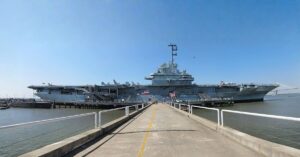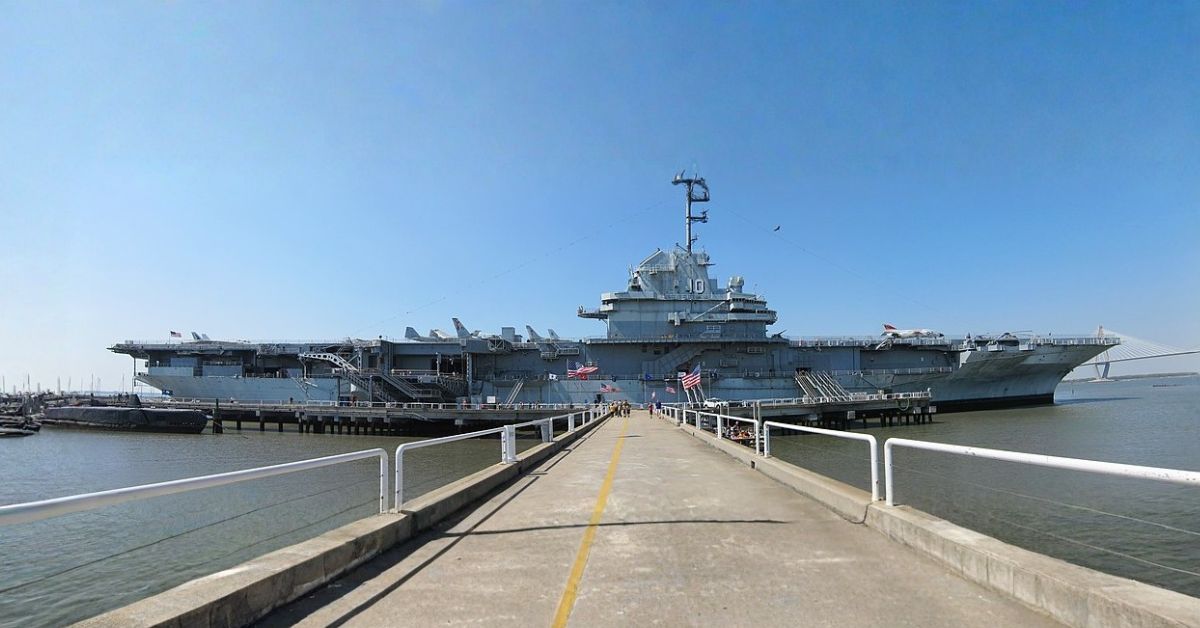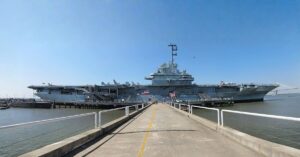
Iran Seizes Tanker Near UAE In First Reported Seizure In Recent Months
November 15, 2025
Video Captures Dramatic Moment Ferry Collides With Tanker Off Singapore
November 15, 2025

A two-year environmental remediation project on the USS Yorktown has concluded with the removal of more than 1.6 million gallons of hazardous fuel, oil, contaminated water, and nine tonnes of asbestos, preventing what authorities said had become a serious pollution threat to Charleston Harbour.
The operation, funded through a $31.6 million American Rescue Plan Act grant, was launched under a 2022 executive order after engineers warned that the ageing vessel’s corroding hull could release long-stored pollutants into surrounding waters.
According to remarks shared through his office during Wednesday’s announcement, Governor Henry McMaster said that the ship had effectively become an environmental risk that intensified each year.
His office said he believed a leak would have caused severe damage to marshes and estuaries, harmed marine life, and put at risk industries that support thousands of jobs in the Lowcountry.
The USS Yorktown was decommissioned in 1970 and brought to South Carolina in 1975, where it was transferred to the state “as is”, with all remaining fuel, oil and sludge still in its tanks. After nearly five decades resting in pluff mud, its outer hull had deteriorated to the point that pollutants were increasingly likely to escape.
The cleanup took place in two main phases:
Phase I — Completed December 2023
- Removal of nearly 569,000 gallons of oily water
- Extraction of 9 tonnes of sludge
- Disposal of 4.5 tonnes of asbestos waste
- Repairs to 35 hull breaches
- Initial environmental assessment and urgent stabilisation work
Phase II — February to October 2025
- Removal of 1.4 million gallons of fuel and oil
- Removal of 9.1 tonnes of asbestos insulation
- Cleaning of more than 130 structural and non-structural tanks
- Refilling of cleaned tanks with freshwater to keep the vessel stable
- Contractors from HEPACO LLC, Shipwright Inc. and Isla Maritime carried out the work on site.
The USS Yorktown, built in 1943 as an Essex-class aircraft carrier, served in the Second World War, the Vietnam War, and assisted in the Apollo 8 astronaut recovery.
The ship originally replaced the first Yorktown, which was lost during the Battle of Midway. At its operational height, the 820-foot carrier was manned by around 3,300 sailors.
It is now a nationally recognised historic landmark and the centrepiece of the Patriot’s Point Naval and Maritime Museum, attracting approximately 300,000 visitors each year.
The state Office of Resilience said its chief expressed pride in the team for recognising the urgency of the situation and completing the work efficiently while securing an important historic site for the future.
References: southcarolinapublicradio, abcnews4
Source: Maritime Shipping News


